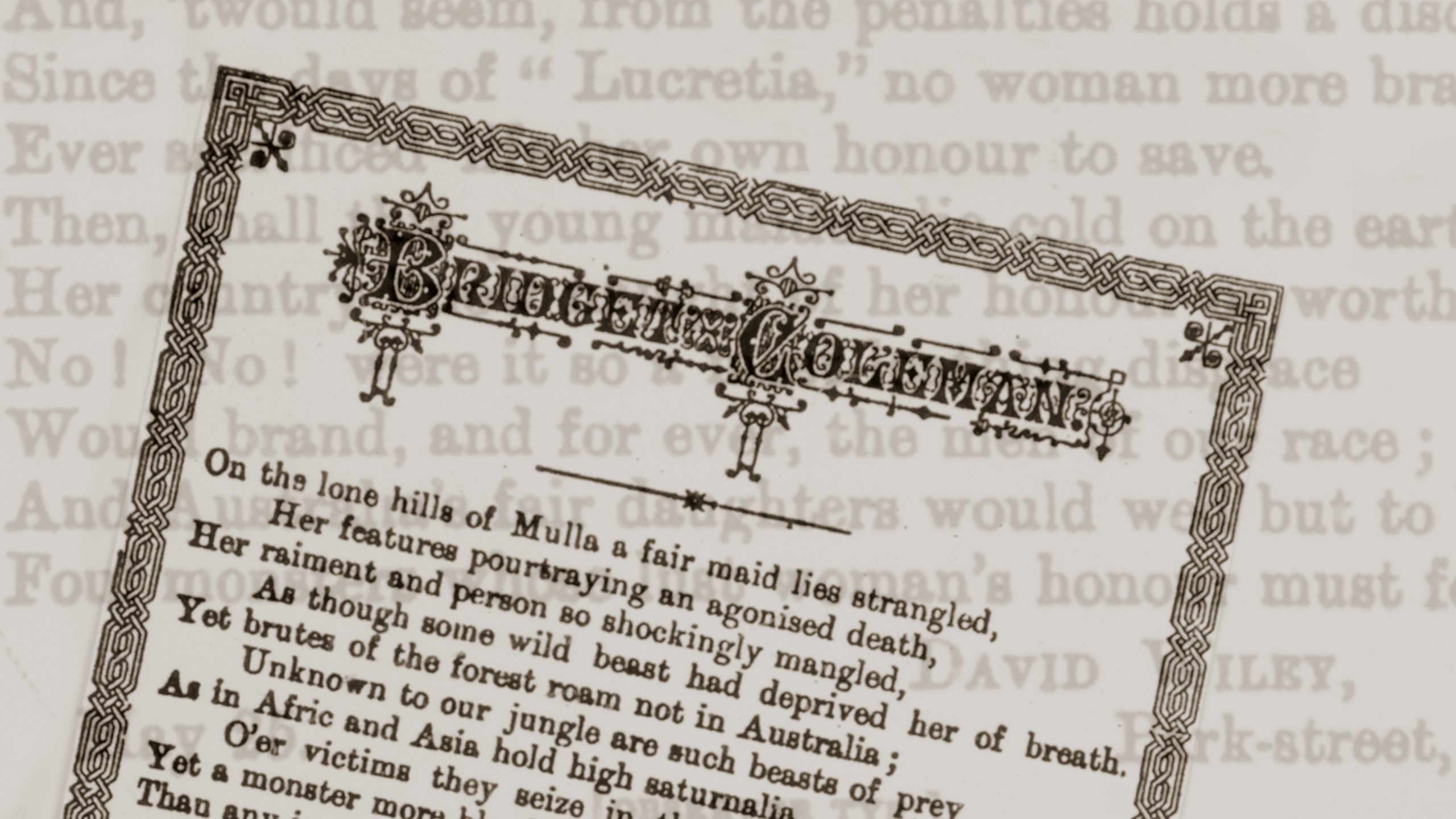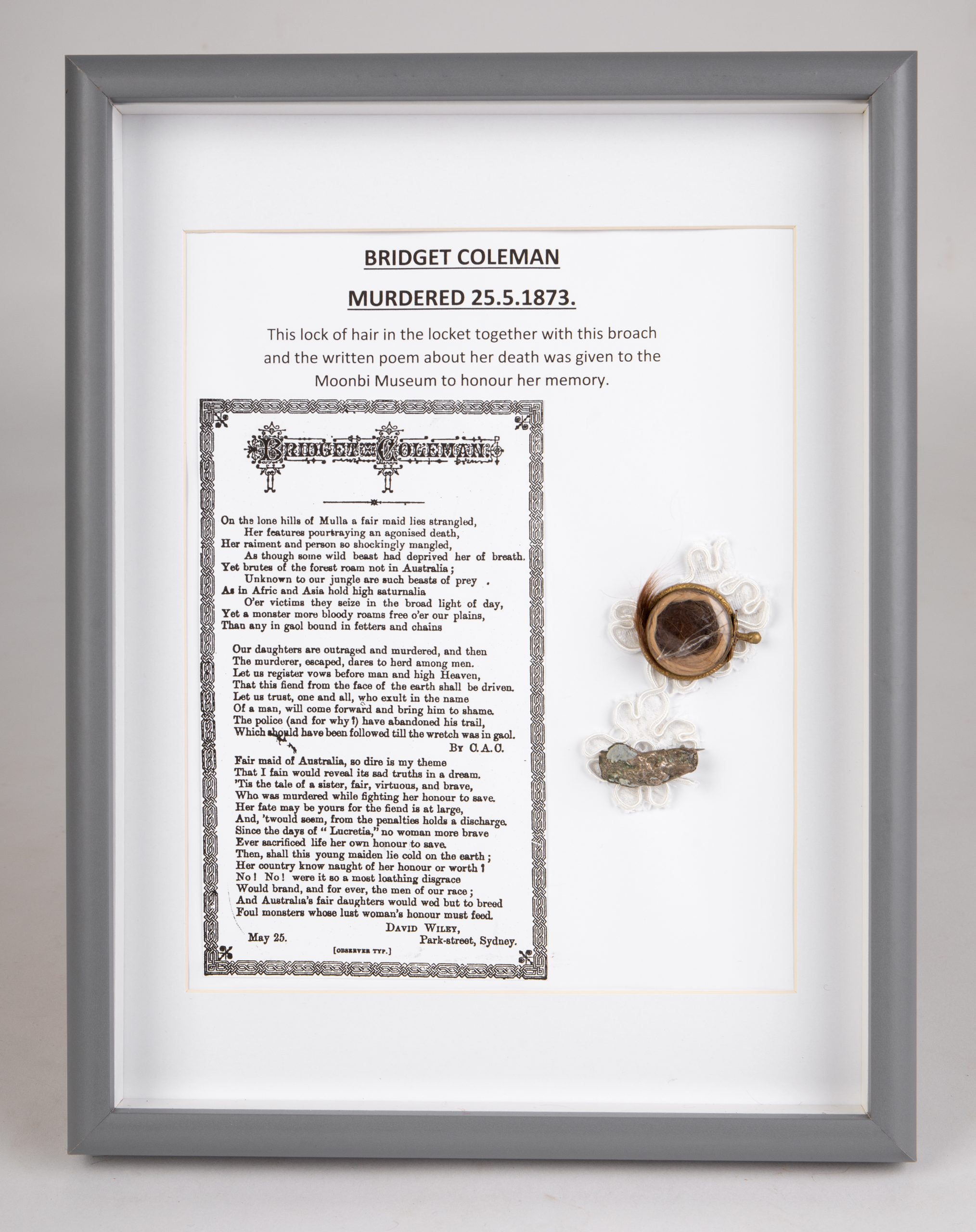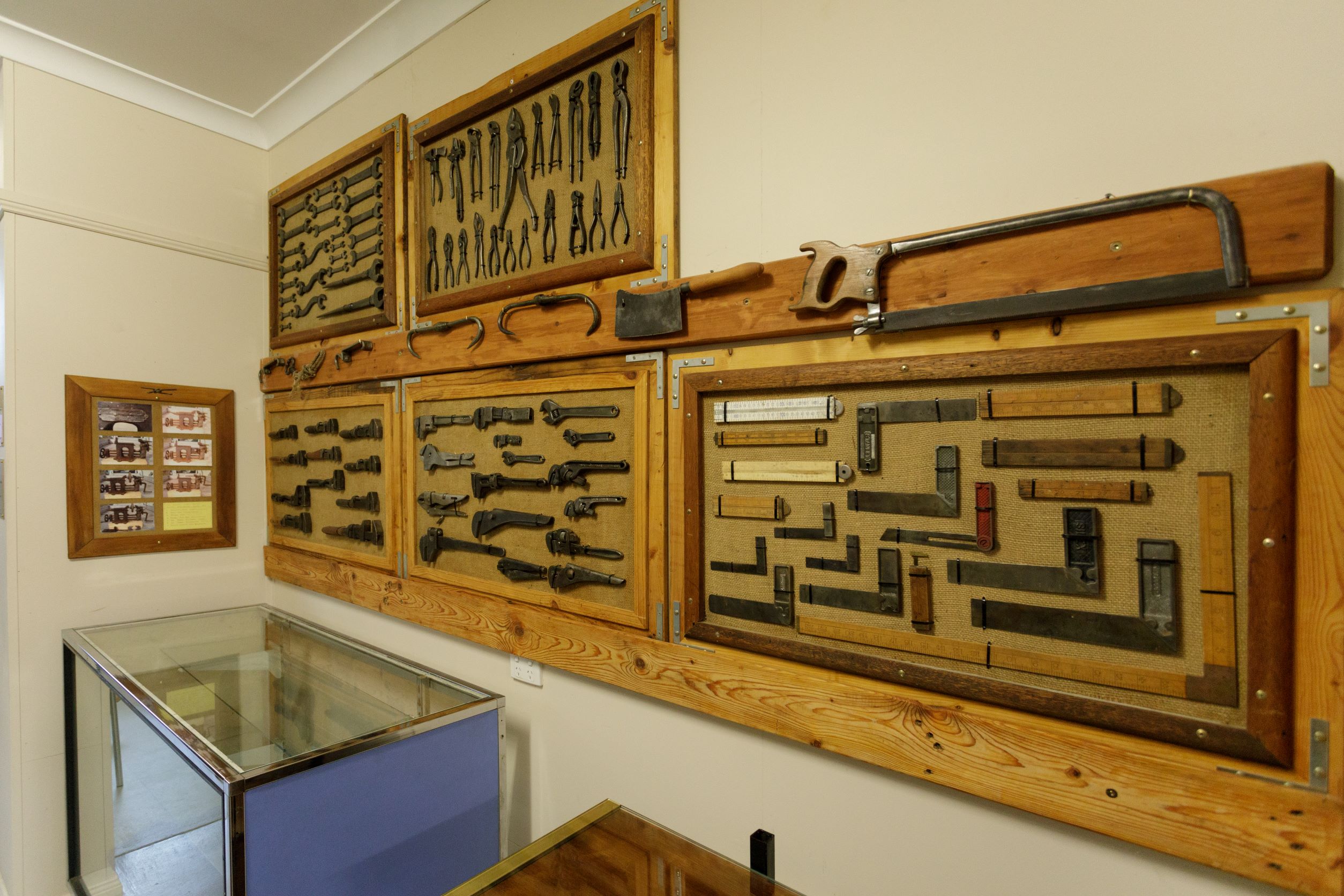Poetic Injustice
Moved by Murder at Moonbi
When a young shepherdess named Bridget Coleman (1856-1873) was murdered at Moonbi near Tamworth in 1873, David Wiley (1815-1876), a stranger to her, penned a poem about this crime. In the simply titled poem ‘Bridget Coleman’, Wiley expressed deep dissatisfaction that authorities did not find and bring to justice Bridget’s brutal killer.
But why did Wiley, a comfortable city-based businessman, take such an interest in the misfortune of a young and poor rural woman whose life was so far removed from his? Or was it?
As a new British settler to NSW, in 1858, Wiley was full of hope for the colony and his young family. A skilled craftsman, Wiley quickly established in business as a basket maker and built a reputation for making everyday household items such as wicker cradles and clothes baskets. He used his wit and word skills to write advertising jingles, as well as to express his common-man views on city and colonial life through poetry, which he also developed some reputation for.
By 1873 Wiley’s son had moved to Maitland and married. Maitland had strong settler connections to Tamworth and the ‘Moonbi Murder’ stirred great concern and emotion across this and other neighbouring centres.
Wiley also had three daughters whose future as wives and mothers weighed on his mind–his youngest was the same age as Bridget. Wiley’s concern for his daughter is echoed in the words he wrote about Bridget–including that she had been robbed of her expected feminine ‘dream’ to ‘wed and to breed’.





